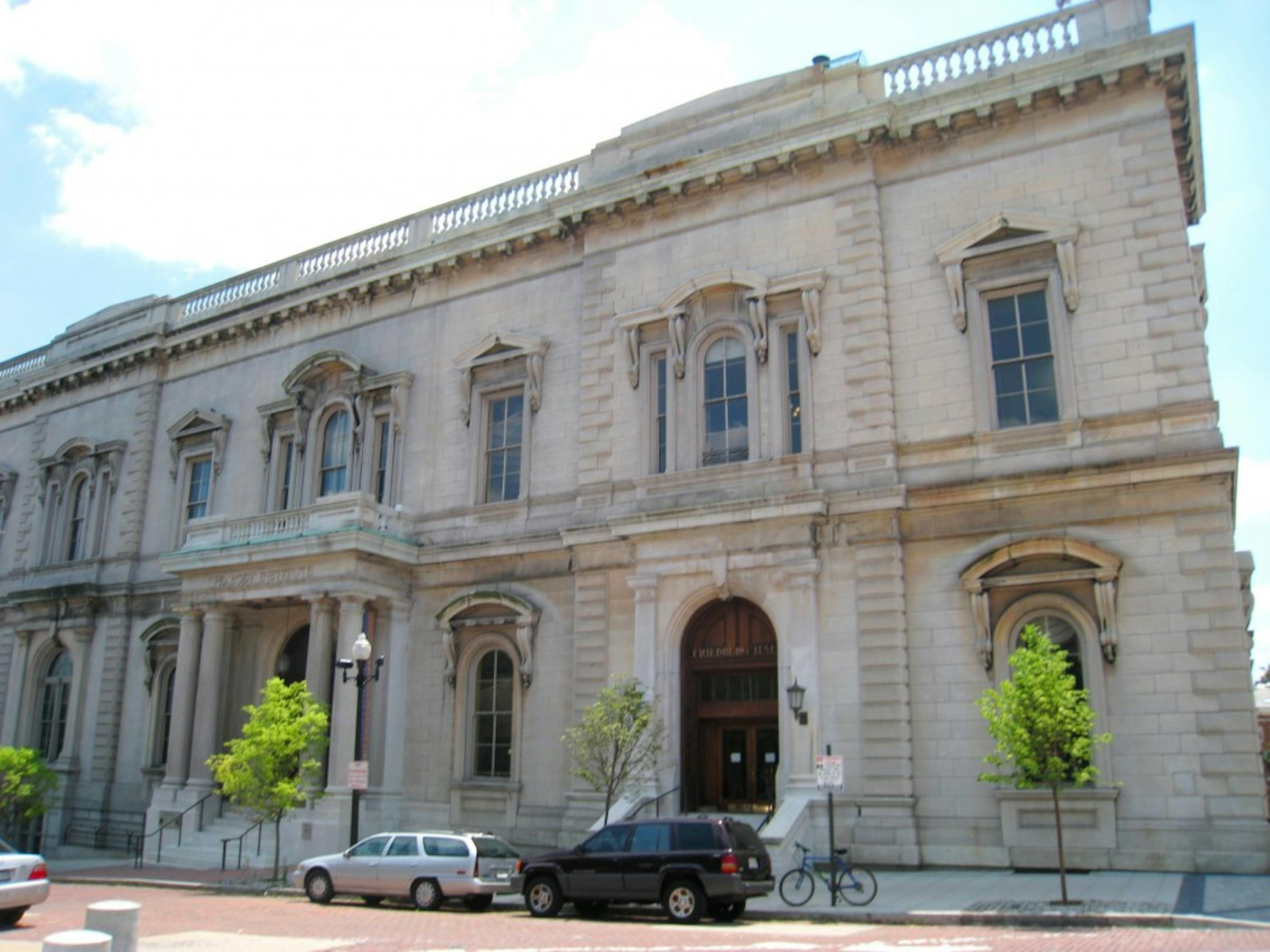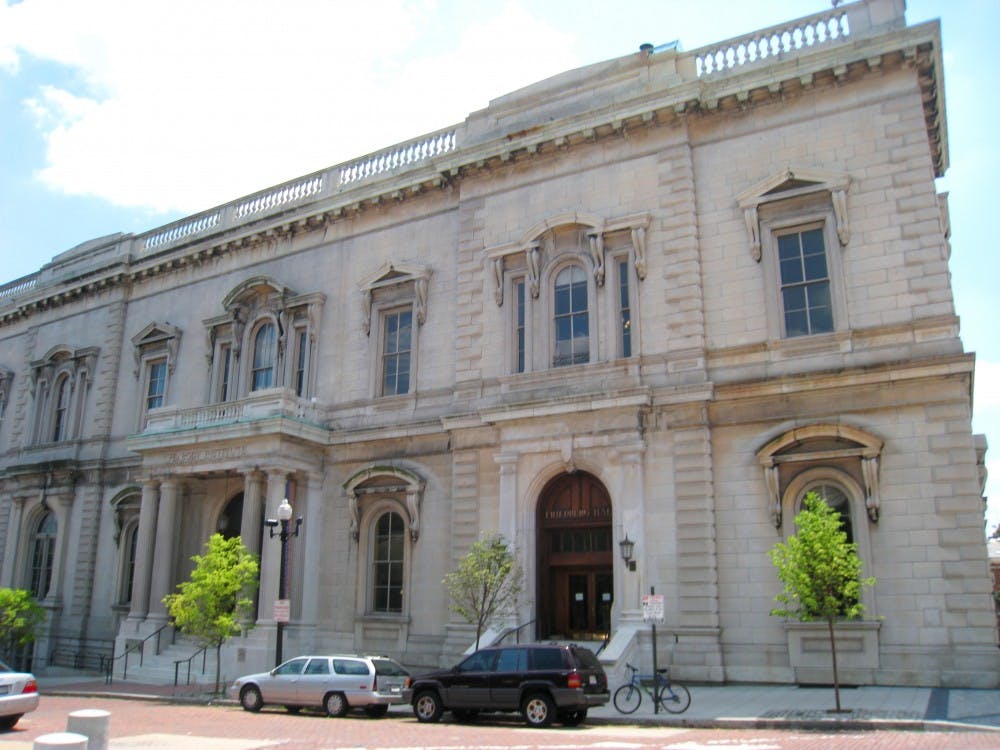
PUBLIC DOMAIN
The Peabody Institute hosts free concerts in a wide variety of genres throughout the year.
The Peabody Modern Orchestra held the first spring concert of the 2017-2018 Concert Season on Saturday, Jan. 27, in the Miriam A. Friedberg Concert Hall at the Peabody Conservatory of Music in Mount Vernon. The orchestra played a selection of pieces authored by contemporary composers under the direction of conductor Harlan D. Parker.
The first selection was “They Will Take My Island” by Robert Martin, who received his bachelor’s and master’s degrees in music composition from the Peabody Conservatory of Music.
The one-movement piece involves 10 players comprising two quintets: one of flute, oboe, horn, clarinet and bassoon and the other of two violins, one viola, cello and double bass.
The piece was composed in honor of the 30th anniversary of the North/South Consonance, a group and concert series founded by composer Max Lifchitz.
The title and the inspiration for “They Will Take My Island” came from a painting by artist Arshile Gorky — now owned by the Brooklyn Museum. Martin emulated the biomorphic and colorful qualities of this abstract expressionist painting to create a symphony with an urgent, driving mood.
The orchestra next played the “Chamber Concerto” by Steven Stucky, commissioned by the Saint Paul Chamber Orchestra in 2009.
The piece features several woodwind solos and alternates between languid lyrical portions and fast, marching pacing. Stucky was a successful contemporary composer who received the 2005 Pulitzer Prize for his “Second Concerto For Orchestra,” commissioned by the Los Angeles Philharmonic.
Following a brief intermission, the concert continued with two pieces which evoked very different moods: one of the marine and the other of the digital.
“Become River” by John Luther Adams was an atmospheric and melodious piece reflecting on the sound and the shape of water.
The piece has a fascinating origin: Adams had been composing a piece for the Seattle Symphony titled “Become Ocean” and was encouraged by friend Steven Schick to make a smaller piece for the St. Paul Chamber Orchestra focusing upon the flow of a river into a delta.
The final performance of the evening was of “Sea-Blue Circuitry” by Mason Bates. The selection was designed to evoke the sounds of electronics and circuitry using only instruments — nothing electronic nor any inorganic mechanisms.
The orchestra played deftly to create the strident, dissonant sounds which evoked the beeps and zings of modern technology.
Peabody Modern Orchestra’s Conductor Harlan D. Parker has been an innovative conductor of the Peabody Wind Ensemble since 1990. Under his direction, they have given more than 40 world premieres and earned critical praise from a number of celebrated contemporary composers.
Upcoming concerts from the Peabody music ensembles will feature Beethoven, Debussy, Mendelssohn and other composers. A Jan. 31 performance of the Peabody Symphony Orchestra commemorated the 40th anniversary of the Peabody Institute’s affiliation with Hopkins.
The Peabody Wind Ensemble will play its first concert of the spring semester on Feb. 7 in the Miriam A. Friedberg Concert Hall, playing Samuel Barber’s Overture to “The School for Scandal,” Charles Ives’ “Variations on ‘America,’” Alfred Reed’s “El Camino Real,” Joaquin Rodrigo’s “Adagio for Wind Orchestra” and Vittorio Giannini’s “Symphony No. 3.”
The Peabody Chamber Orchestra will play its first concert of the spring season on Feb. 17, conducted by Marin Alsop of the Baltimore Symphony Orchestra.
The Chamber Orchestra will be performing Shostakovich’s “Cello Concerto No. 1 in E-flat major, Op. 107” and Beethoven’s “Symphony No. 3 in E-flat major, Op. 55, ‘Eroica.’”
A Faculty Showcase on Feb. 26, 2018 in Leith Symington Griswold Hall will feature a quartet performing Claude Debussy’s “Syrinx” for flute solo, Johannes Brahms’ “Clarinet Trio in A minor, Op. 14,” Joachim Stutschewsky’s “Hassidic Fantasy” and Felix Mendelssohn’s “Trio for Flute, Cello, and Piano in D minor, Op. 49.”
The Peabody Institute stages over 100 concerts and performances each year presenting music in a range of genres from contemporary to jazz.
All concerts of the 2017-2018 season held at the Peabody Institute are free to all, as they have been since September of 2016.
The initiative was announced as a part of a larger effort by Peabody and Hopkins to engage more deeply with the Baltimore community, in this case, to offer to its music lovers a place to listen to world-class musicians performing work from a wide range of genres.





